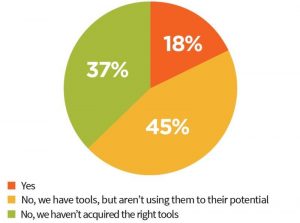Columnist Andrew Shotland takes a look at the “near me” phenomenon and shares data that helps illuminate how to rank for these queries.

If you are targeting local searchers and have not employed a “Near Me” SEO strategy, I think it’s time we had a talk.

As you can see, Google Trends data shows explosive growth of “things to do near me” queries worldwide. But it’s not just “things to do” — it’s pretty much every query that has local intent:
Looking for a psychic near you?
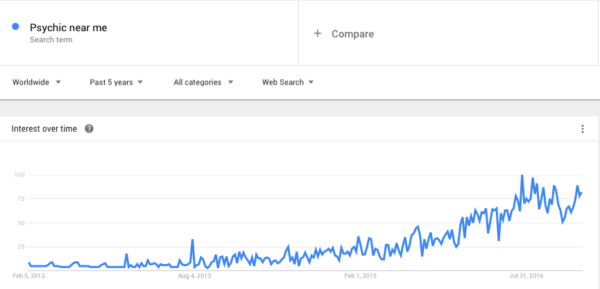
How about a sex therapist near you?
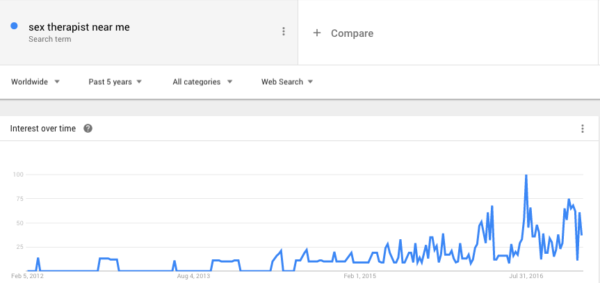
And if you’re feeling in need of something a bit less physical, how about Jesus near you?

Of course, it’s not like people just woke up a year or two ago and decided it was time to start doing “near me” searches. This is more a result of Google, and Apple’s Spotlight Search to some extent, increasing the number of queries that suggest “near me” as an option as search goes more mobile (and thus more local in intent). And fat fingers being what they are, we hit the first suggestion near us. I mean, look at the search volume just for “near me!”

And even though “near me” appears to be a mobile-driven phenomenon, across our client base we are still seeing more than 50 percent of the traffic from these queries coming from desktop — and more than 80 percent of the clicks.
Now, “near me” queries as a whole are a relatively small part of local search volume, but these searches are clear signals of local intent and thus represent high-quality traffic for businesses targeting locally.

It’s safe to say there’s opportunity for traffic near you. So how do you capture it?
‘Near me’ ranking factors
I could pull the typical SEO guru act and spit out your classic “top 10 tips” and “you won’t believe what happened next” — but at LocalSEOGuide, we like to approach things a bit more methodically. So we decided to do some scientific research.
As you may recall, in 2016 we conducted the first ever statistical study of of Google’s Local SEO Ranking Factors by looking at over 35,000 businesses and 100+ factors. So we added “near me” to our existing data and ran the numbers.
We looked at some of the most popular “near me” queries, including:
- dentist near me
- grocery store near me
- gas station near me
- hair salons near me
- movie theater near me
- restaurants near me
All totaled, we looked at ~600 searches, which included ~6,000 Google My Business (GMB) pages, as well as the corresponding domains/pages that the GMB pages linked to. The data showed the following factors had the strongest positive correlations with ranking well in Google’s local pack for “near me” searches:
- Google reviews
- Total number of backlinks with searched city and state in the anchor text
- Percent of backlinks with searched city and state in the anchor text
In our Local SEO Ranking Factors study, link metrics also were some of the strongest indicators of good rankings, so it’s not surprising that they also matter for “near me” queries. In fact, TripAdvisor’s aggressive use of “near me” in internal link anchor text may be one of the reasons those URLs rank so well for “near me” queries:
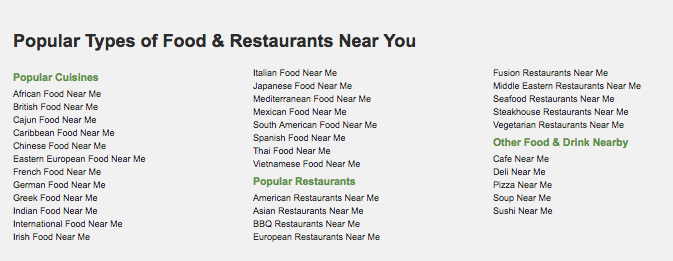
Interestingly, the distance of a business from the searcher did not correlate strongly with positive search rankings. When you look at typical local pack results, they are often not ordered by distance. For example, see this “hamburgers near me” local pack:

In the case above, the reason for the ordering may be because the two top-ranked businesses have “burger” in their name — “Keywords in Business Name” was a strong factor in our original study — or some combination of additional factors which may trump distance.
The data did show that being in the same city as a “near me” search had a stronger correlation with positive performance, so we are going to have to do some more digging into this subject in our 2017 Local SEO Ranking Factors study.
Capturing “near me” searches
So, what can you do to take advantage of “near me” today? Based on our study and our experience working on large and small locally-targeted sites around the world:
- Add “near me” to the title tags of your location pages.
- Add “near me” and popular keyword variants to the text of these pages.
- Add “near me” to the anchor text of the internal links to these pages, particularly on your store locator pages if you are a multi-location brand.
- Get backlinks to your location pages with geo-specific anchor text.
And once you get the basics down, start thinking about how to go after similar targets. For example, “nearest me” queries are also growing:
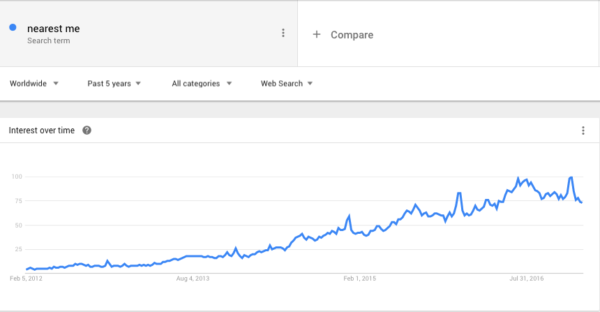
And they show slightly different results from “near me” — I guess “nearest” is a more precise a request.
If you’ve made it this far, hopefully by now you realize that with minimal effort, you can use this strategy to get near more of your customers quickly.
For more detail on the methodology of our “near me” study, go to Near Me Local SEO Ranking Factors on our blog.
[Article on Search Engine Land.]
Some opinions expressed in this article may be those of a guest author and not necessarily Marketing Land. Staff authors are listed here.
Marketing Land – Internet Marketing News, Strategies & Tips
(79)
Report Post





